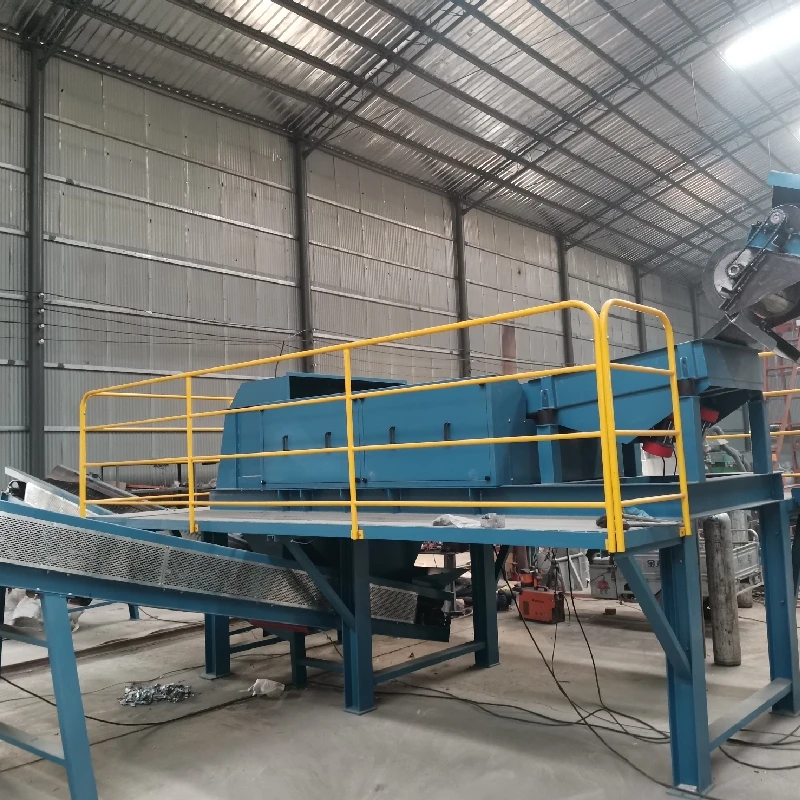

Kas . 10, 2024 09:06 Back to list
How Do You Recycle Electronic Waste?
In today’s digital age, electronic devices have become ubiquitous in our daily lives. From smartphones and laptops to televisions and kitchen appliances, the presence of electronics is undeniable. However, the rapid advancement in technology and the short lifespan of many devices have resulted in a growing concern electronic waste, or e-waste. E-waste comprises discarded electrical or electronic devices, which pose a significant environmental hazard if not properly managed. Recycling e-waste is essential for both environmental sustainability and resource conservation. But how exactly can we recycle electronic waste? This article outlines effective methods and practices for recycling e-waste responsibly.
Understanding E-Waste
Before delving into recycling methods, it’s crucial to grasp what constitutes electronic waste. Common items classified as e-waste include computers, televisions, mobile phones, printers, and appliances like refrigerators and microwaves. These gadgets contain a mélange of hazardous materials, such as lead, mercury, and cadmium, which can leach into the environment if disposed of improperly. Conversely, they also contain valuable metals and materials that can be reclaimed through recycling processes.
Step 1 Assess and Prepare Your E-Waste
The first step in recycling electronic waste is assessing what items you have that can be recycled. Check for broken or outdated devices that you may no longer use. Before recycling, ensure that personal data is removed from devices. For computers and smartphones, perform a factory reset and erase all personal information. It’s also wise to remove batteries from devices, as they often require separate recycling.
Step 2 Find Local Recycling Programs
Once you have prepared your e-waste, the next step is to find local recycling programs. Many communities have designated drop-off points for e-waste. Local municipalities often organize special collection events or permanent recycling centers where residents can dispose of their electronic devices safely. You can also visit the websites of local environmental agencies to get information on nearby e-waste recycling options.
Step 3 Utilize Retailer Take-Back Programs

Many electronic retailers and manufacturers have established take-back programs that encourage consumers to return old devices when purchasing new ones. Stores like Best Buy and Staples often have designated recycling kiosks for unwanted electronics. These programs not only simplify the recycling process but also help raise awareness about the importance of responsible disposal.
Step 4 Consider Donation or Resale
Not all old electronic devices need to be recycled. If your items are still functional, consider donating them to local charities, schools, or community centers. Many organizations accept working devices, which can be refurbished and redistributed to those in need. Alternatively, you can resell your electronics through platforms like eBay, Craigslist, or Facebook Marketplace. This approach prolongs the life of the device and keeps it out of landfills.
Step 5 Support Certified E-Waste Recyclers
When choosing a recycling option, it’s vital to ensure that the recycler is certified and adheres to environmentally responsible practices. Look for organizations with certifications like e-Stewards or R2. These certifications guarantee that e-waste is processed safely and that harmful materials are handled correctly. Ethical recyclers will also focus on maximizing resource recovery while minimizing environmental impact.
The Importance of E-Waste Recycling
Recycling electronic waste is crucial for several reasons. Firstly, it conserves natural resources by reclaiming valuable materials such as gold, silver, and copper from old devices. Secondly, responsible e-waste recycling minimizes pollution and reduces the risk of harmful substances contaminating the environment. Lastly, proper recycling creates job opportunities in the recycling industry and promotes sustainable practices in the community.
Final Thoughts
As electronic waste continues to accumulate at alarming rates, it becomes increasingly crucial for individuals and communities to adopt responsible recycling practices. By assessing, preparing, and recycling electronic waste through local programs, retailer take-back options, and certified recyclers, we can contribute to a healthier environment and a sustainable future. Let’s embrace the responsibility of recycling e-waste—not only for ourselves but for future generations. Together, we can make a difference.
Latest news
Troubleshooting Common Eddy Separator Problems
NewsJul.04,2025
The Role of Metal Recycling Plants in Circular Economy
NewsJul.04,2025
The Impact of Recycling Line Pickers on Waste Management Costs
NewsJul.04,2025
Safety Features Every Metal Shredder Should Have
NewsJul.04,2025
How Industrial Shredders Improve Waste Management Systems
NewsJul.04,2025
How Cable Granulators Contribute to Sustainable Recycling
NewsJul.04,2025